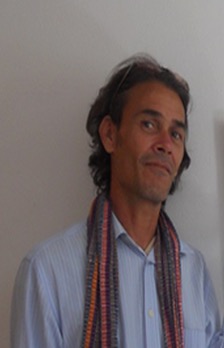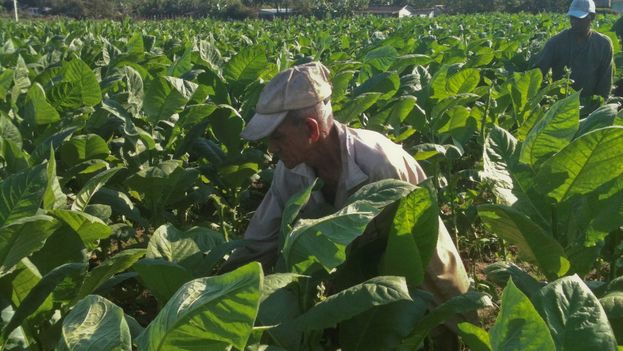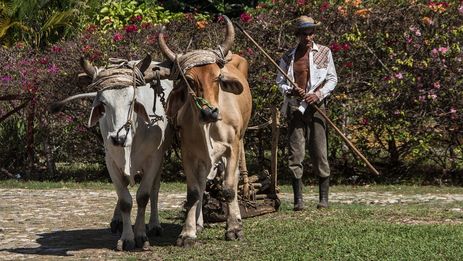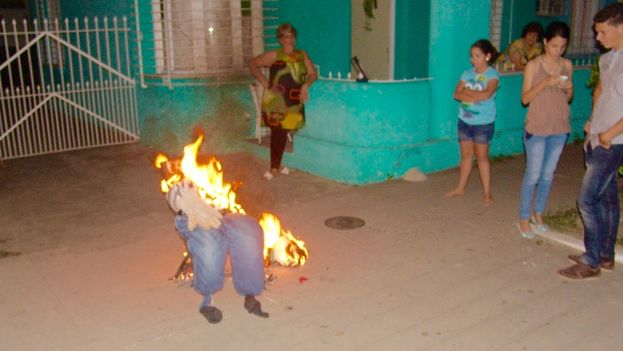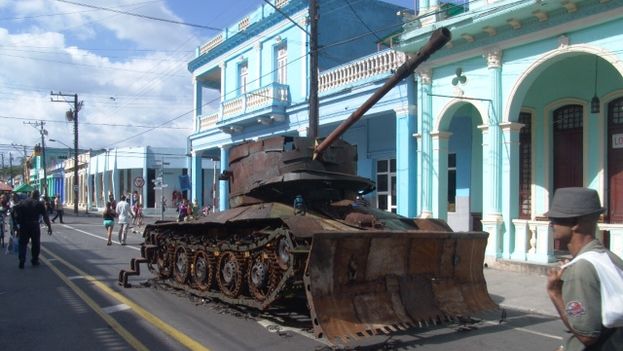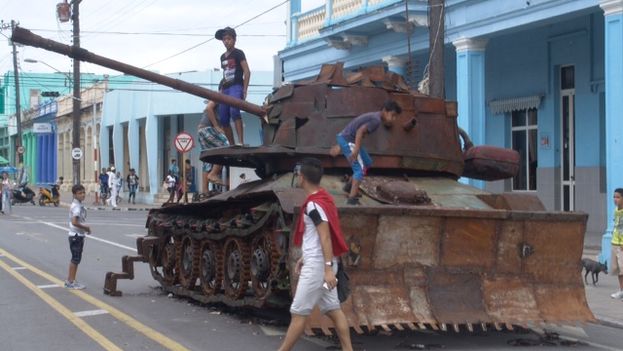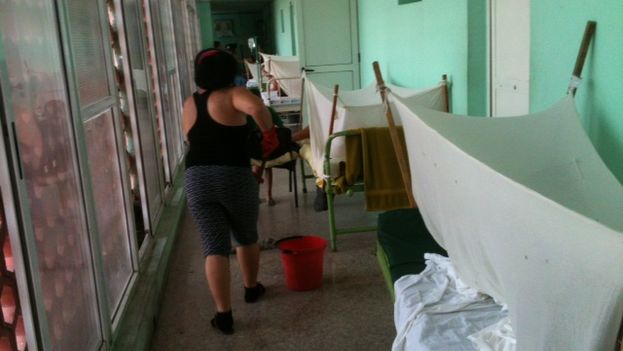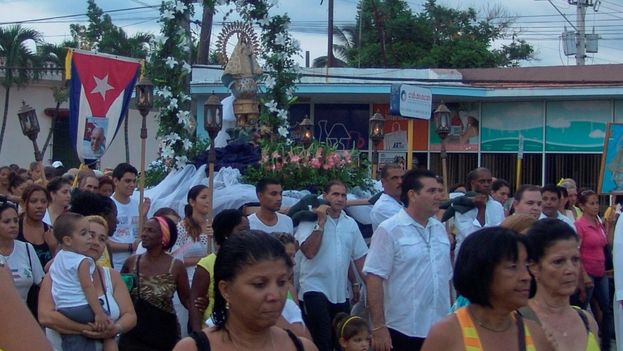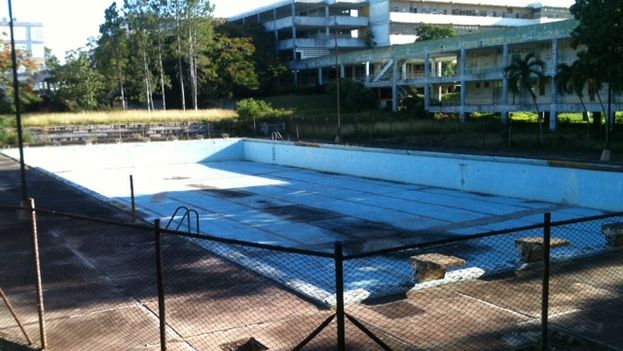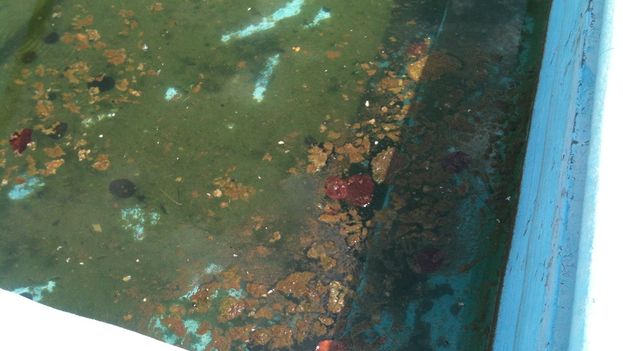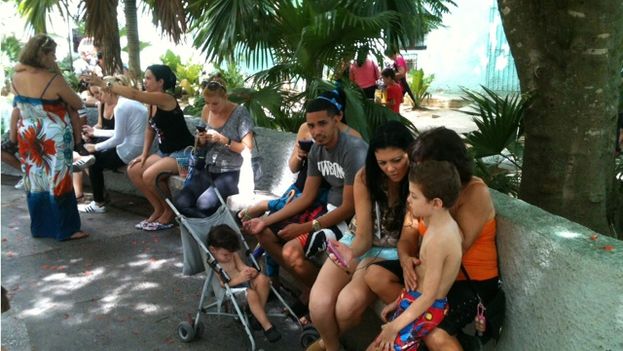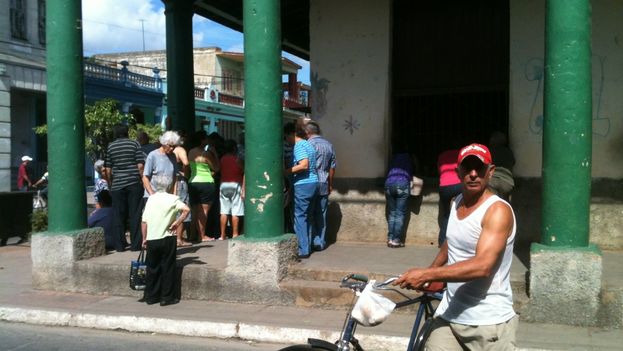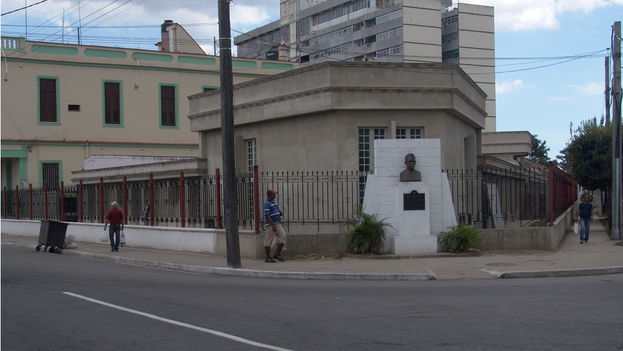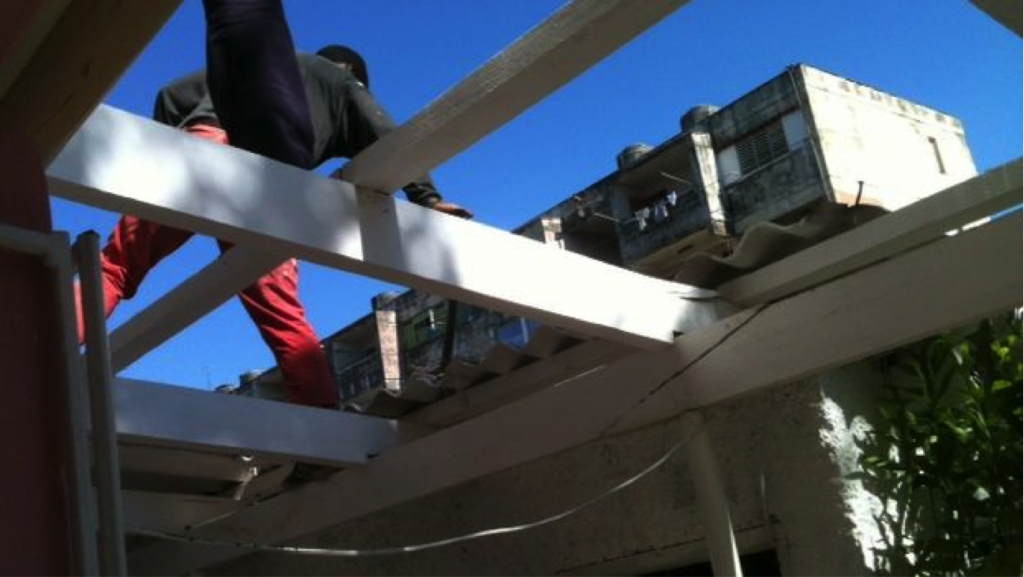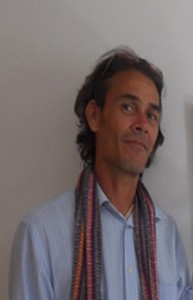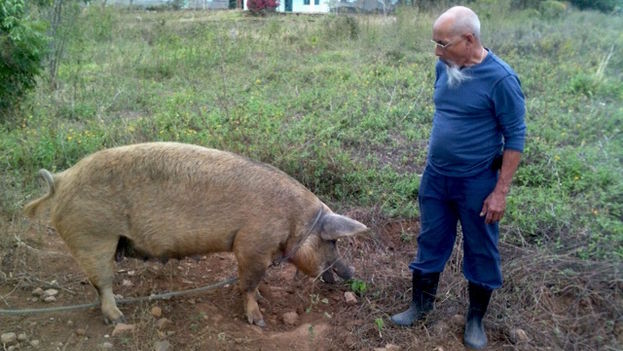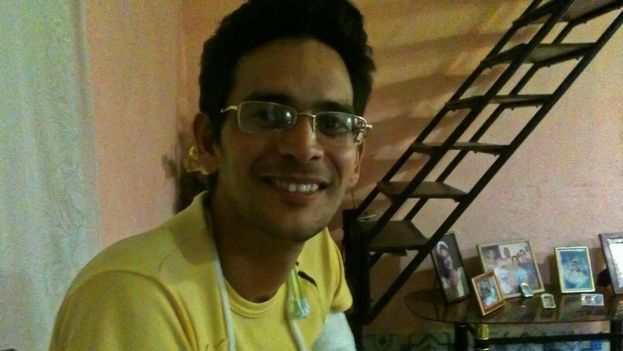
![]() 14ymedio, Juan Carlos Fernandez, Pinar del Rio, 27 March 2016 – He moves his fingers at full speed over the screen of his phone without ceasing to talk. The modern gadget keeps him in touch with the most important part of his life: friends, other members of his evangelical congregation, and the subscribers to an electronic weekly he publishes from his own home. Ricardo Fernandez Izaguirre took advantage of the inauguration of Nauta’s email service to create an informative publication with a Christian outlook. He talks about the achievements and difficulties of this project with 14ymedio.
14ymedio, Juan Carlos Fernandez, Pinar del Rio, 27 March 2016 – He moves his fingers at full speed over the screen of his phone without ceasing to talk. The modern gadget keeps him in touch with the most important part of his life: friends, other members of his evangelical congregation, and the subscribers to an electronic weekly he publishes from his own home. Ricardo Fernandez Izaguirre took advantage of the inauguration of Nauta’s email service to create an informative publication with a Christian outlook. He talks about the achievements and difficulties of this project with 14ymedio.
Juan Carlos Fernandez. You were born in Camaguey but now live in Pinar del Rio and you are the editor of the digital weekly Fire and Dynamics. How did this publication come about and what is its profile?
Ricardo Fernández Izaguirre. The idea of publishing the weekly came up two years ago and was born when the Empresa de Telecomunicaciones de Cuba (ETECSA) announced email service from mobile phones. In a first step I tried to promote this practice in all the Cuban churches. However, this proposal failed because of many denominations’ fear of government reprisals. continue reading
I decided to undertake the project on my own and in August of last year the digital weekly Fire and Dynamics was born. It is a Christian themed newspaper whose goal is to reach Cubans living on the island and supply the need for information that we all suffer from. We show the facts objectively but through a Biblical lens. All you need to do to subscribe is to send an email to maifd.revistadigital@nauta.cu
JCF. Have you suffered any kind of censorship for publishing this weekly?
RFI. Yes, I was working as a pastor for Bethel Pentecostal Church, on a mission in the municipality of San Luis. Last December, the pastor of the Pinar del Río region urged me, in front of the leaders of the capital municipality, to abandon the project. Faced with my refusal, the assembled leaders voted to expel me from the leadership.
It was something I saw coming, because of the fear that many people feel when they do something that could be interpreted as a confrontation with the State or supportive of any renegade expression. Although the weekly is not explicitly political, it addresses those issues directly and openly.
JCF. Working as an editor at this publication, directed by Pastor Bernardo de Quesada, have you realized a long-standing professional dream?
RFI. I studied for a while for a degree in social communication, because I dreamed of becoming a journalist, but the college used the old trick of pressuring me to renounce that. In the end, I’ve managed to do what I like.
JCF. The fears of any independent publication, that keep officialdom up at night, seem to be centered in this case in the suspicions towards the Apostolic Church of which you are a part. Does the church continue to not be legally recognized?
RFI. We do not have the option to legalize our Church, first because they are not about to pass a law of association and religion; and also because we do not go along with the way that other churches, which are part of the Council of Churches of Cuba, are subject to manipulation in exchange for some “privileges” which should be rights for everyone.
JCF. Yet, the Cuban authorities claim that the country has religious freedom. Is that so?
RFI. According to the Cuban constitution the State is declared separate from the Church and there is no favoritism, but in reality they are trying to crush any voice that cries out for freedom and doesn’t submit to their designs. Freedom is respect.

